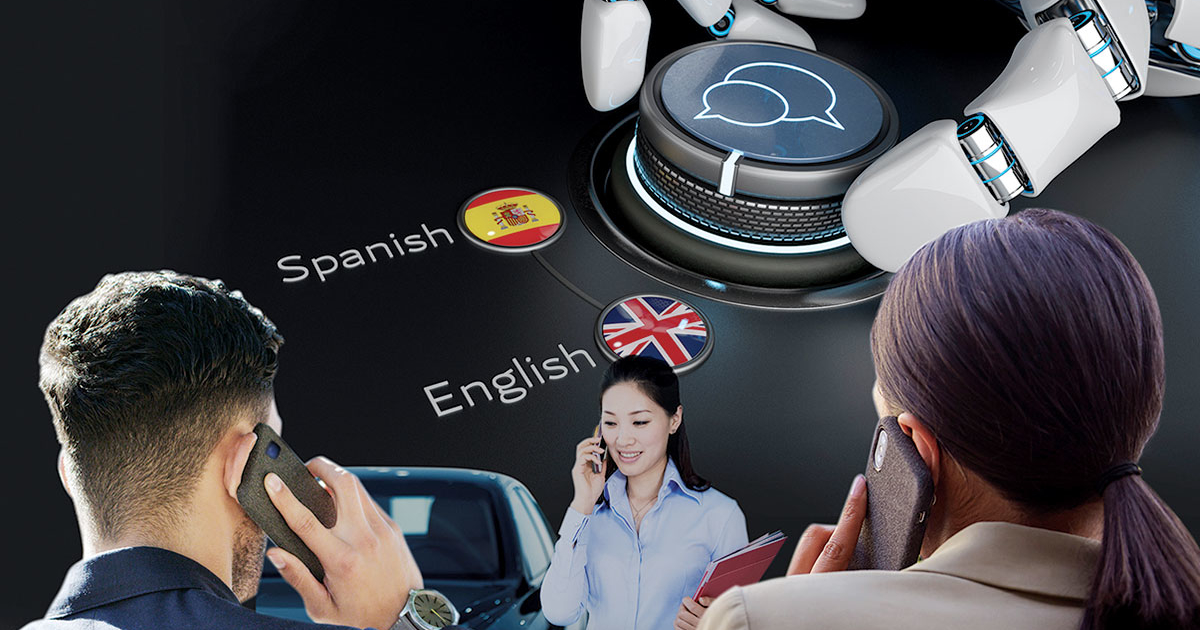
Chance Mayfield argues that automotive dealerships are still missing a lucrative opportunity — reaching the ever-growing number of Spanish-speaking customers.
He is the founder of Carfluent, a startup designed to help address this. The Dallas-based company formally debuted its artificial intelligence software in June, with a pitch the technology would publish additional search, inventory and vehicle detail pages on dealership websites with highly accurate Spanish translations. It is designed to be a plug-in that is compatible with dealerships and their dealership management systems, allowing them to be “instantly bilingual” with their Spanish-speaking customers, Mayfield said.
Carfluent is a young company with eight employees that formally launched in 2022. It is bootstrapped, or self-funded, so far. The company started generating revenue last year and has roughly 10 customers, including independent and franchised dealerships, Mayfield said.
In an interview with Staff Reporter Mark Hollmer, Mayfield examined dealership shortfalls in reaching Spanish-speaking customers and why a Spanish translator tool can go a long way toward helping dealershipsreach an increasingly important shopping demographic. Here are edited excerpts.
How a Spanish language technology tool is a first step toward addressing dealership language barrier problems.
It’s so very much a starting point. There is other stuff that needs to be fixed … and strategy matters for any segment of consumers you’re going after. I won’t sit here and say we’ll solve it, but it will solve the most important thing we’re missing right now which is the ability for a Spanish speaker to just engage with them. We just have got to start somewhere, and a dealer’s website is there to do nothing but help them sell cars, to merchandise inventory — so we just wanted to address that part.
On why artificial intelligence helps with a Spanish-language website tool.
We needed an easy way to address data and translate data at scale, and AI is really the only way we can do that. The AI we work with is really great for that because it allows us to train it.
Why Spanish-speaking automotive customers aren’t served well by current retail technology.
There have been efforts to improve by a few vendors, but in general it’s not very good. It’s a fragmented user experience when you’re shopping for a car. Some data is in English; sometimes it’s in Spanish. If I am seeing an advertisement in Spanish for a vehicle I may be interested in, if I click [the ad] oftentimes I am driven to an English page. There are these really big points of friction.
On why friction points in the auto retailing process are worse for Spanish speakers.
English speakers can still push themselves through a sales funnel the way we want them to online. All of that data is always in English. An inability to build trust with Spanish speakers is a really big problem and [dealerships] have been looking for a way to do that [beyond Google translate] for years.
How language barriers drive Spanish-speaking consumers away.
We hear about it often … we have some dealers that have struggled to make sure calls [from Spanish-speaking consumers] are always routed to a Spanish speaker. If for some reason a Spanish speaker gets caught up in that English phone tree, they just kind of bounce away; it’s easier if they have [Spanish language] staff at the store. It’s easier to do in person … but it’s also important to work that online, and if they can’t read it you can’t build up trust with anybody.
How creating successful bilingual dealership websites is a struggle of technology and awareness.
DMS inventories may be somewhat archaic, some would say, and well defined in terms of how they work … you would have to require a lot of retooling their tech stacks to make it work.
On the future of online sales with Spanish speakers.
If we’re going to be serious about selling more cars to Spanish speakers, something we have to understand is the user experience online is highly important and there’s room for improvement when it comes to Spanish speakers.